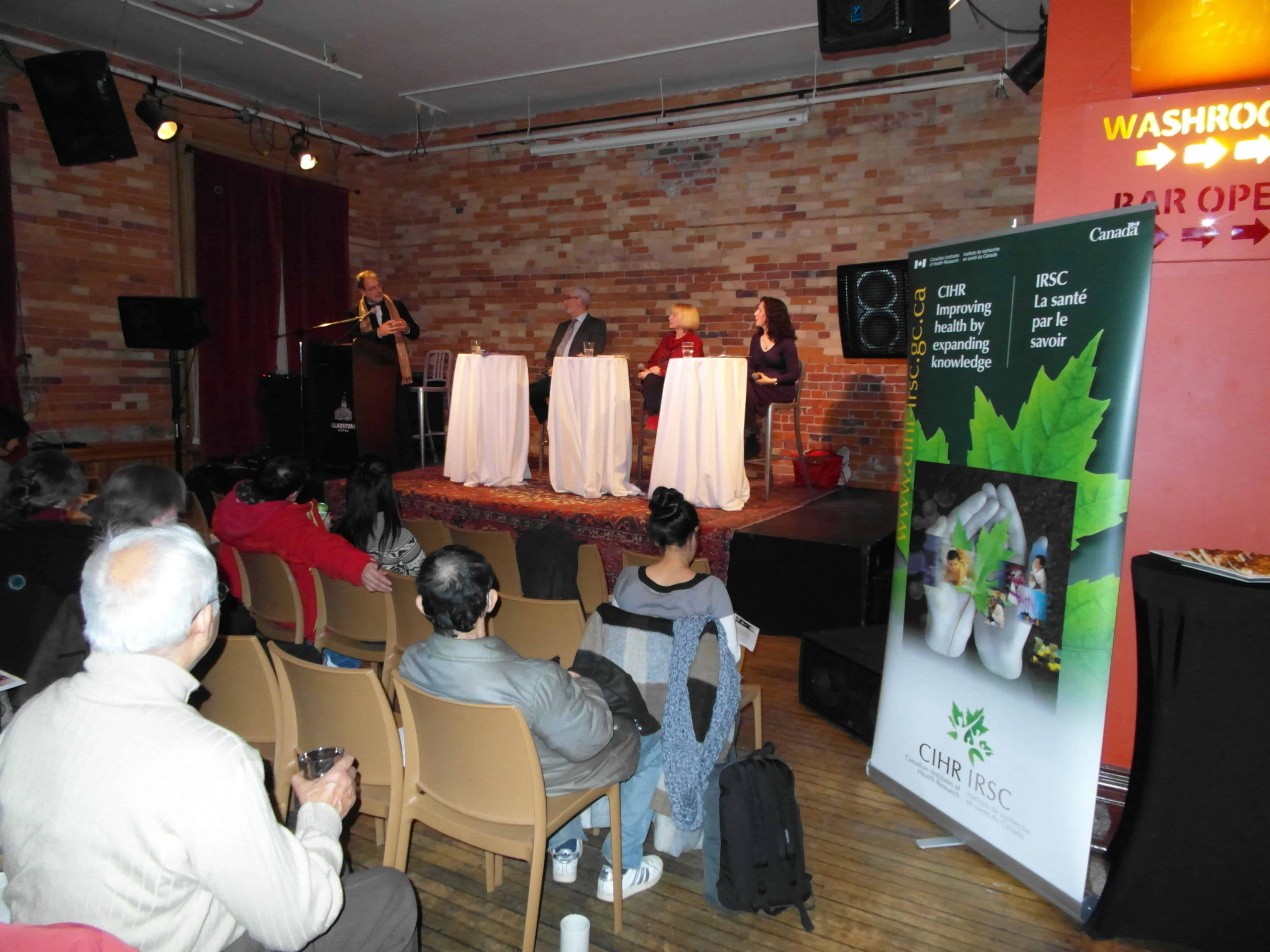Dementia creates stigma and fear. The negative connotations surrounding it after diagnosis affect people unlike anything else. While the origins of the word dementia suggest a demented mind, this couldn’t be further from the truth.
Dementia refers to memory loss. This, in and of itself, is a frightening concept. But it’s estimated that in 20 years, the number of Canadians living with dementia will double to 1.4 million. There are many forms of dementia, including Alzheimer’s disease and vascular dementia, which are caused by strokes. While there are treatments that can slow the progression of memory loss caused by these diseases, no cure currently exists.
Alzheimer’s Disease International showed in a recent poll that 40 per cent of people diagnosed with dementia felt avoided by others. This can be caused by the public’s lack of understanding of the disease; unfair stereotypes ensue that can have a negative psychological impact on people with dementia, as well as on their caregivers and family members.
On January 28, 2013, the Canadian Institutes of Health Research (CIHR) held an informal discussion about the myths and realities of dementia that people face after being diagnosed with the condition. Three Canadian experts and one moderator addressed the subject from different standpoints in their respective presentations.
Dr. Christopher Patterson, a geriatric physician at Hamilton Health Services and professor of Geriatric Medicine at McMaster University, discussed the clinical aspects of dementia and the role of medication. According to him, there’s a stigma attached to old age itself. Cognitive disabilities magnify the problem and demonstrate a wide knowledge gap. For instance, Patterson cited the example of one retirement home in the United Kingdom, which stated that they would take patients with dementia but not Alzheimer’s, while another said that they would take patients with Alzheimer’s but not dementia — illustrating that personnel at retirement homes can be uneducated about their clientele. But it doesn’t stop there. Stigma is generated by society as a whole. Patterson highlighted how another example, that of a registered nurse familiar with dementia and its symptoms, who didn’t want to tell her friends about the diagnosis because she felt that they wouldn’t want to visit with them anymore.
Patterson suggested that stigma regarding dementia is worse in the United States. People who are diagnosed with the disease are asked to surrender their driver’s license. They also find it hard, if not impossible to find health and travel insurance. But negative connotations about dementia extend to common daily activities. People often feel that they’re afflicted with the problem when they forget something as simple as car keys.
Dr. Pia Kontos, a research scientist at the Toronto Rehabilitation Institute and an assistant professor at the University of Toronto’s Dalla Lana School of Public Health, spoke about her personal research into dementia and her perspective about how society deals with the problem. She illustrated the fact that even though a person’s ‘self’ might deteriorate after diagnosis with dementia, they still retain parts of their personality. Dementia originates in the cerebral cortex of the brain, which accounts for approximately two-thirds of its mass and controls sensory and cognitive functions. Once the cerebral cortex starts to degenerate, a person with dementia experiences difficulty in his or her ability to think, feel, understand, speak, and act. While the cognitive part of the brain is affected, emotional parts remain stable. In Kontos’s opinion, people with dementia retain the ability to carry out common actions like painting, dancing or singing. She offered a personal anecdote from her research that involved a 90-year-old man. This war veteran with dementia refused to stand up for physiotherapy sessions. A solution was found when the physiotherapist decided to play the national anthem. While the veteran apparently had no memory of his past, he still stood up and saluted his physiotherapist. From then on, their sessions started with the national anthem. This demonstrates the need for a new ethic of care for those with dementia: respect.
Julie Foley, a healthcare consultant, attended the discussion not as a consultant but rather as a caregiver. Her husband, a social worker, was diagnosed with dementia five years ago. While the news was harsh, things didn’t change much a year after his diagnosis. Foley noted that the best thing to do after diagnosis is share the news with everyone. In her opinion, you’ll find that you can actually get needed love and support — especially from family members. On a bright note, despite suffering from dementia, her husband has continued to visit two of his patients at Bridgepoint Health every Wednesday. Foley says that while it’s essential to make small changes after diagnosis with dementia, it’s also important to continue doing the things that you love.
After a short break, the moderator, Dr. Yves Joanette, Scientific Director of CIHR’s Institute of Aging, fielded questions from the audience regarding dementia and directed them to the appropriate expert.
The overall thrust of the questions was clear. In order to end fear regarding dementia, it’s important for society to recognize that a person with the problem is still a person. Society needs to embrace knowledge about mental health issues and accept that health research will lead to promises for those afflicted. Embracing knowledge leads to respect and respect will dispel stigma.


